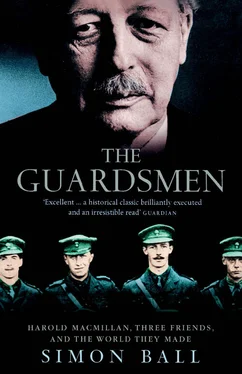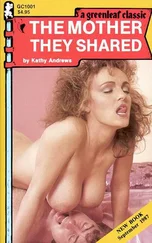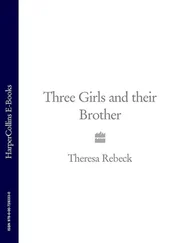By the time Cranborne, Lyttelton and Crookshank were forming their mature friendships at school, they were no longer boys but young men. The notable absentee was, of course, Macmillan, who was the only one who crashed at Eton. Macmillan and Crookshank had maintained their Summer Fields friendship. Whereas Crookshank flowered at Eton, Macmillan struggled. He was withdrawn by his mother in 1909. Macmillan was tight-lipped about his failure. He devoted a page in his memoirs to Eton as compared to a full chapter in Lyttelton’s. By his own account: ‘During my first half at Eton I had a serious attack of pneumonia, which I only just survived. Some years later, I suffered from growing too fast, and a bad state of the heart was diagnosed. This led to my leaving Eton prematurely and spending many months in bed or as an invalid.’ 46 Many years later J. B. S. Haldane spread the rumour that Macmillan had, in fact, been expelled for egregious homosexuality. Eton, like all public schools, lived in fear of the nameless vice. One of Edward Lyttelton’s first acts as headmaster was to break a house whose captain had an appetite for buggery. Haldane was certainly in a position to know the cause of Macmillan’s departure. ‘Of course I remember him very well,’ Macmillan acknowledged when he was prime minister. ‘He was in the election above me at College, as well as a pupil of Henry Bowlby. I used to see him after the first war but have not seen him for many years.’ 47 Haldane was, in all likelihood, motivated by malice. Macmillan himself was certainly malicious about Haldane’s family. Enjoying the discomfiture of Gilbert Mitchison in the House of Commons, his mind was thrown back to Eton. ‘He was Captain of Oppidans in my time and was a silly, pompous and conceited ass even then. As a punishment he married Naomi Haldane, and is now more or less insane.’ 48 Whatever the truth about Macmillan’s departure from Eton, it certainly denied him the opportunity to mix with boys of his own age at the very time when he was maturing into manhood. This was to presage an unfortunate pattern. His time at Oxford was also cut short, as was his time in the army. Throughout his life Macmillan was to have difficulties in his relations with male contemporaries. The one relationship in which there was never awkwardness was that with Harry Crookshank. That they had been friends even before they reached Eton was significant.
Macmillan returned home from Eton to an even more pressurized environment. A. B. Ramsay, the fearsome Classic, called regularly to give him lessons. He seemed to Macmillan ‘a man of the world, elegant, refined and a most perfect gentleman’, much superior to Dr Lyttelton. 49 His mother’s other choices of tutor were somewhat stranger. The first to arrive was a Dilly Knox, friend of Harold’s brother, Daniel. On the face of it, the Knox connection seemed safe enough. Knox père was the fiercely evangelical Bishop of Manchester, known as ‘Hard Knox’ for his no-nonsense approach to educating the young. 50 Dilly Knox, on the other hand, was one of those young masters who took the lead in ragging Edward Lyttelton. Knox was a formidable classical scholar but was found too ‘austere’ for Harold. He was replaced by his younger brother Ronnie. Dilly was eleven years older than Harold, whereas Ronnie was only six years his senior. Harold was seventeen, Ronnie twenty-two: they were close enough in age to become intimate friends. Too intimate, in the view of Nellie Macmillan. She ordered Ronnie from the house in 1910. They had already argued about his pay, but this was ‘7000 times more important’. Mrs Macmillan had accused Ronnie of infecting Harold with ‘papism’. The situation was fraught with emotion: ‘I am extremely (and not unreturnedly) fond of the boy,’ Ronnie told his sister, ‘and it’s been a horrid wrench to go without saying a word to him of what I wanted to say.’ 51 Whatever its dangers, Harold’s high-priced and exceptional tuition did pay off in one sense: he won an Exhibition to Balliol and was thus able to arrive at university at the same time as his Eton contemporaries.
Just as Eton was not just another public school, so the colleges the boys attended at Oxford and Cambridge were notable for their wealth, size and social prestige. Lyttelton and Cranborne could simply follow in family tradition, Lyttelton to Trinity College, Cambridge, Cranborne to Christ Church, Oxford. Family tradition meant nothing to the new men. Crookshank went up to Magdalen College, Oxford, Macmillan followed his brother to the worldly Balliol College, Oxford, rather than his father to the more ascetic Christ’s College, Cambridge.
The traditional patterns established at Eton persisted at university. Lyttelton and Cranborne gravitated to the aristocratic beau monde, giving little thought to their studies. Macmillan and Crookshank were exceptionally serious. Lyttelton quickly discovered the joy of girls. In the Easter vacation of his first year he found himself staying at Lympne Castle, not far from Wittersham, with ‘Dinah’. He regaled his mother with their adventures: ‘Dinah and I…set off to walk to Lympne. After half an hour Dinah fell into a ditch and got wet and being anxious to see me in the same state made a compact with me that we wouldn’t go round any canal. Soon we swam a broad canal having thrown most of our clothes over the other side and we ended up swimming the military canal.’ 52 He drew a discreet veil over the denouement of their unclothed adventures in the Royal Military Canal. He also abjured his parents’ distaste for horse racing. Lyttelton’s passion for gambling led to inevitable conflicts, unconvincing excuses and anguished reconciliations when he had to borrow money from his parents to settle his debts:
I am so terribly sorry that you should have thought I was ungrateful or anything, that I don’t know what to do. But for the last three days I have been ill, I eat [ sic ] something that has poisoned me, and I have been bad and very sick but am better today. I am clearing up my accounts and will write you tomorrow at the latest. Darling Mother, for God’s sake don’t think me ungrateful for I simply can’t stand it. I have done ill enough without this: but that you should think me ungrateful or callous is too awful. You can’t realize how I feel towards you both or you couldn’t think such a thing for a minute. So please understand, I am sure you do really. 53
Bobbety Cranborne had no such money worries. His set at Oxford consisted of aristocrats, both English and foreign, as well as royalty. He roomed with the Russian prince Serge Obolensky, whom Lyttelton found ‘rather nice and very good looking’. 54 Unlike Obolensky, who was a fanatical polo player, Cranborne was not particularly horsy. This did not prevent him living a ‘hearty’ lifestyle. He was a member of the Loders Club, where a requirement for membership was that one was ‘a gentleman, a sportsman, and a jolly good fellow’. Established in 1814 as a debating club, it had long since degenerated into a group that dedicated each Sunday in term to hard drinking. In a mockery of the Oxford-Cambridge polo match, in which Obolensky was playing ‘at some unearthly inappropriate hour’, Bobbety and Prince Paul of Yugoslavia ‘got bicycles and awakened the echoes by playing polo in the street’. When they were arrested, a drunken Cranborne declared that he needed no lawyer and would defend in person the right of freeborn Englishmen to play bicycle polo. In court he ‘said he did not think they had annoyed any of the residents, but had merely entertained them’. For all his pains, they were fined a crown each and costs. 55
Cranborne’s academic performance was abject. In his first year he failed in his attempts to avoid his matriculation examination. 56 In 1913 he failed his Mods completely, drawing ‘sympathy…qualified by remonstrance and admonition’ from his tutor. 57 He decided that he would not bother to try again. In any case, of much more long-term moment than a failure to grapple with the classical authors was his burgeoning interest in international affairs. 58 He became close friends with Timothy Eden, ‘a shy, retiring, soft-featured young man’ who was the heir to a baronetcy. 59 Eden was part of the more ‘worthy’ side of Cranborne’s Oxford life. 60 He ran a ‘Round Table’ devoted to public affairs. He made contact with serious-minded young men like Frank Walters, who later became an official and champion of the League of Nations. 61 Through his uncles, both outspoken champions of Anglo-Catholicism, Cranborne also got to know Macmillan’s mentor Ronnie Knox whom he invited to his eponymous country seat, Cranborne in Dorset, during the Easter vacation of 1914.
Читать дальше












